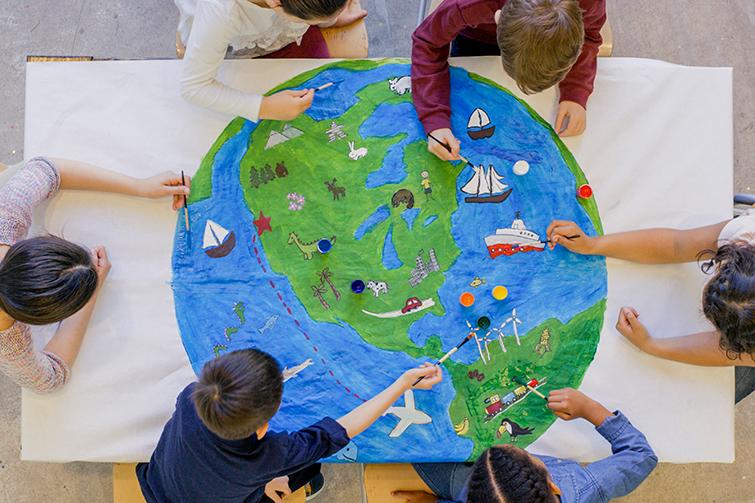Spotlight on Civic Learning

High-quality civic learning is crucial for ensuring that young people are prepared to contribute to thriving democratic societies through informed civic participation and constructive engagement with their communities.
Democracies across the globe are grappling with the growing spread of mis/disinformation, increasing political polarization, and inequities in political participation. In recent years we’ve witnessed the erosion of some democratic institutions, increasing global authoritarianism, and decreasing faith in democracy itself. In a promising sign, many young people around the world are rising to these challenges and engaging with their communities and with political institutions to promote change and advance justice. And still, many students lack access to opportunities to learn about and practice civic engagement. This includes disparities in access to high-quality civic learning during the school day; disparities in safe and supportive afterschool organizations; and family, school, and community barriers to civic participation.
Advances in civic learning can contribute to the preservation and improvement of democracy and self-governance, the promotion of discourse and deliberation about important policy issues, and the readiness of all individuals, regardless of social or economic background, to succeed and thrive in democratic societies.
Civic learning takes place in schools, communities, families, and other institutions and is an essential contributor to a well-functioning democracy. Civic learning is driven by instruction, experiences, and opportunities that foster civic knowledge, civic skills (e.g., critical thinking, news/media literacy, civil discourse), and civic dispositions (e.g., civic interest, civic efficacy, empathy, open-mindedness, and social responsibility) for the purpose of promoting responsible and informed civic participation.
Our Work
AIR’s work in civic learning draws on the diverse content and methodological expertise of AIR staff and the collaborations we form with clients and partners. Our research and technical assistance cuts across several areas of civic learning:
- Evaluating the impacts of educational interventions (i.e., policies, programs, and practices) on civic learning outcomes including interventions specific to K-12 civics and social studies, as well as relevant interventions in other K-12 subject areas, organized activities (i.e., out-of-school time programs), and postsecondary education.
- Examining the intersections of equity, inclusion, civic learning, and civic engagement.
- Analyzing developmental trajectories to deepen understanding of how civic knowledge, skills, and dispositions change across the life course, and the roles that life experiences, developmental contexts (e.g., family, peers, schools, organized activities), and institutions play in shaping civic development.
- Developing and validating measures of civic learning opportunities and outcomes.
- Supporting state and local agencies and foundations in developing tools and processes for engaging youth, educators, and the broader community in civic learning experiences.
Our Partners and Funders
- Council for Aid to Education
- Digital Inquiry Group
- Facing History & Ourselves
- iCivics
- Institute for Citizens & Scholars
- The Meadows Center for Preventing Educational Risk (MCPER) at The University of Texas at Austin
- Thinking Habitats
- University of Florida
- University of Glasgow
- U.S. Department of Education
- U.S. Department of Defense
- WestEd





